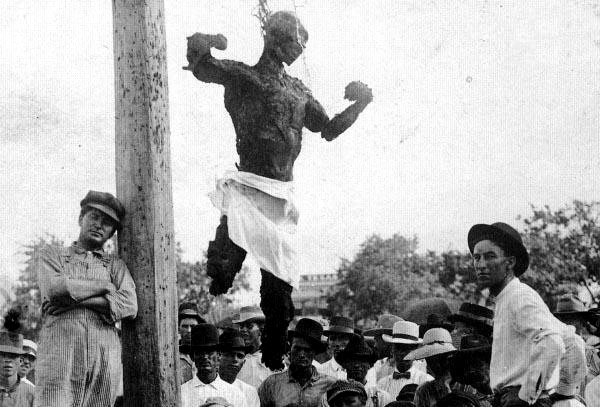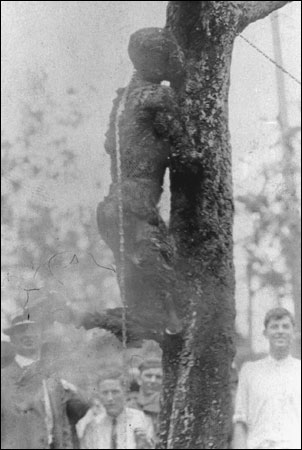
Ida B. Wells
Wikipedia
***
"Bad Black People." Why Bill O'Reilly Is Wrong Even When He's Right"
***
Charles Barkley
and the Plague of 'Unintelligent' Blacks
A history of respectability politics, from the postbellum period to today
Charles Barkley recently explained why "we as black people are never going to be successful." His reasoning is painful:
"We as black people are never going to be successful, not because of you white people, but because of other black people. When you are black, you have to deal with so much crap in your life from other black people," Barkley said.
Barkley, a native of Leeds, [Alabama,] said African Americans are too concerned with street cred than true success and that's holding the community back.
"For some reason we are brainwashed to think, if you're not a thug or an idiot, you're not black enough. If you go to school, make good grades, speak intelligent, and don't break the law, you're not a good black person. It's a dirty, dark secret in the black community.
"There are a lot of black people who are unintelligent, who don't have success. It's best to knock a successful black person down because they're intelligent, they speak well, they do well in school, and they're successful. It's just typical BS that goes on when you're black, man."
It's worth noting that there isn't much difference between Barkley's claim that "there are a lot black people who are unintelligent" and the claims of a garden-variety racist. I assume that Barkley meant to say something more nuanced. That more charitable analysis, though, is far from a "dirty dark secret." The notion that black irresponsibility is at least part of the "race problem" is widely shared among black America's most prominent figures, beginning—but not ending—with the president of the United States.
I've written on this several times and there's really no need to do it again. I simply maintain, as I always have, that if aliens were to compare the socioeconomic realities of the black community with the history of their treatment in this country, they would not be mystified. Respectability politics is, at its root, the inability to look into the cold dark void of history. For if black people are—as I maintain—no part of the problem, if the problem truly is 100 percent explained by white supremacy, then we are presented with a set of unfortunate facts about our home.

Alan: Most Americans have living relatives who were alive when these good Christians cooked this man.
Several years ago, I attended a talk by UNC-Chapel Hill Public Health Professor John Hatch who mentioned that all four grandparents were born into slavery. In one of his ancestral families the children were auctioned off in a single day. Knowing that the new owners would remove them to distant plantations - with no hope of family reunion - a bereaved daughter committed suicide within hours of her sale.
To think that this heritage - still burningly alive in human memory - can be transcended in a few generations is more Pharisaic than the good church-goers whom Yeshua railed against.
"Yeshua Excoriates Fellow Pharisees"
***
More photos of good Christians barbecuing human beings
can be viewed at the bottom of this post.
can be viewed at the bottom of this post.
***
And the looking away is quite old. In his book Lynching: American Mob Murder in Global Perspective, historian Robert Thurston traces the roots of respectability politics to the postbellum era. Asked to assess the problem of lynching, black public figures condemned barbarism—but not just the barbarism of white mobs.
"The criminal record of the Negro people is alarming in its proportions," wrote the great black educator Kelly Miller in 1899. "The whole race is given an evil reputation by reason of its criminal class." Miller was not pro-lynching. But he believed that black criminality was part of the cause and argued that black protest would be fully justified until the rate of black criminality was zero:
It is not sufficient to say that ninety-five out of every hundred Negroes are orderly and well behaved. The ninety-five must band themselves together to restrain or suppress the vicious five.
Miller was not an outlier. "The percentage of Negro criminals is unusually large," asserted Francis J. Grimké. Mary Church Terrell assailed “negroes who are known to have been guilty of assault” claiming that they were "ignorant, repulsive in appearance and as near the brute creation as it is possible for a human being to be.” Terrell asserted that the "best negroes" have no sympathy for such "brutes." In 1918, Tuskegee graduate and educator William J. Edwards claimed in his memoir that “there are criminals in the Negro race for whom no legal form of punishment is too severe.” He went further arguing that the Negro was on a lower order of civilization and often “uneducated, undisciplined, untrained, he is often ferocious or dangerous; he makes a criminal of the lowest type for he is the product of ignorance.”
To a person, all of these black leaders opposed lynching, and said as much. But it is not enough to allow those words to be written off as simply of their time in history. Even in that time there were black people who refused to look away. None stand higher than Ida B. Wells:
Like many other persons who had read of lynching in the South, I had accepted the idea meant to be conveyed—that although lynching was irregular and contrary to law and order, unreasoning anger over the terrible crime of rape led to the lynching; that perhaps the brute deserved justice and the mob was justified in taking his life.
But then Thomas Moss, Calvin McDowell, and Lee Stewart, friends of Ida B. Wells, were lynched, and it became clear that in he case of lynching, the claim of rape might be the pretext for something else:
This is what opened my eyes to what lynching really was. An excuse to get rid of Negroes who were acquiring wealth and property and thus keep the raced down and keep the nigger terrorized.
What Wells did with this realization is what makes her extraordinary. Wells had, at that point, been run out of Memphis for investigating the death of her friends. She lived in the North, effectively under neo-Confederate fatwa. But Wells returned to the South—sometimes with pistol in hand—and spent a significant part of her career investigating and exposing lynchings. To put this differently, having seen her own fault, she rededicated herself to the self-education, to hard study, and publicizing the truth.
When we think of the fight against lynching today, very few people think of the words of Kelly Miller, Francis Grimké, or William J. Edwards. We think of Ida B. Wells because of her unrepentant fight against the barbarism of white supremacy. This version of history is a mistake. It allows the Charles Barkleys of the world and the racists who undoubtedly will approvingly quote him to pretend that they are exposing some heretofore arcane bit of knowledge. In fact they are employing two of the most disreputable traditions in American politics—false equivalence and an appeal to respectability. This is the black tradition that believed that "brutes" were partially responsible for lynching in 20th century, and believes that those some brutes are partially responsible for the "achievement gap" in the 21st.
Thinking people have a decision to make. Will they follow a tradition that half-apologizes when powerful people commit awful crimes? Or will they follow the tradition of Ida B. Wells, of study and investigation, of trying to understand, no matter how horrible that understanding may ultimately seem to be?

Not just good Christians, but "saved!" Bible Belt Christians.


- "Bank on it: The South Is Always Wrong"
- ***
- "Why The Bible Belt Is Christianity's Worst Enemy"
No comments:
Post a Comment